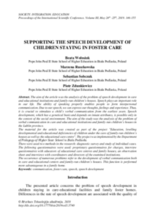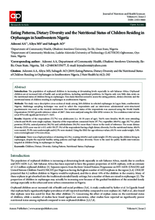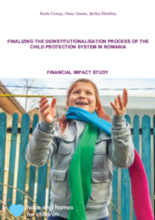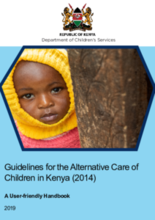Displaying 521 - 530 of 1482
The aim of the article was the analysis of the problem of speech development in care and educational institutions and family-run children’s houses in Poland.
This companion paper provides a snapshot of current practice of therapeutic residential care services conducted in Australia.
This thesis is concerned with the overrepresentation of black and minority ethnic (BME) children and looked after children, in the youth justice system in general and the secure state in particular, in England and Wales.
The objective of this paper is to examine the situation of orphans and vulnerable children (OVC) in Dar es Salaam, Tanzania in existing alternative care systems and explore the treatment of OVC in these systems.
This study aimed to assess the eating patterns, dietary diversity and the nutritional status of children residing in orphanages in southwestern Nigeria.
This study analyzes longitudinal statistics from 18 years of Hope and Homes for Children programs in Romania to demonstrate the cost savings and ability to support a higher number of children at risk if the state were to invest money into programs that allow children to remain in a family environment, rather than be placed in institutional care.
The current study aims to reveal the psychological stresses faced by orphaned children in orphanages.
This paper from the Scottish Journal of Residential Child Care outlines the Child Rescue Centre's process of transitioning from residential care to family-based care in Sierra Leone.
This research poster presents an overview of a study conducted in Northern Italy. The study's aims were to: (1) investgate the associatons among atachment paterns, Emotonal Regulaton (ER) strategies and internalizing or externalizing symptoms showed by adolescents in residental-care and (2) examine the predictve role of atachment and ER strategies for the rates of internalizing/externalizing symptoms.
This handbook is a key tool for supporting care reform in Kenya, promoting family-based alternative care for children, and moving away from institutional care.







